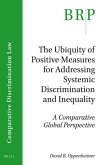Antidumping Measures have been cirticised as anti to competition policy. It is alleged that they are usually abused by small group of producers to protect their monopoly or to protect their cartel prices. India after liberalisation of its economy has become one of the leading users of antidumping measures. Indian use of antidumping measures are being critcised on the same lines on which antidumping measures are generally criticised. Through the anaysis of 150 sample cases the author finds that the criticism is not justified. In addition to it antidumping measures have to be analysed in the general economic policy background of the country. The book attempts to do the same and concludes that although there are very few cases in which antidumping measrues were sought for protectionist purposes, in genreal Indian domestic industry has been vulnerable when it sought the protection of antidumping measures. Antidumping measrues in a way are a tool to regularly check market distortions before these distoritions become serious enough to attract the notice of the competition authority. These measures also help in maintenenace of trade on MFN basis as dumped products as much hurt imports from other sources as they hurt the domestic industry.
Hinweis: Dieser Artikel kann nur an eine deutsche Lieferadresse ausgeliefert werden.
Hinweis: Dieser Artikel kann nur an eine deutsche Lieferadresse ausgeliefert werden.








